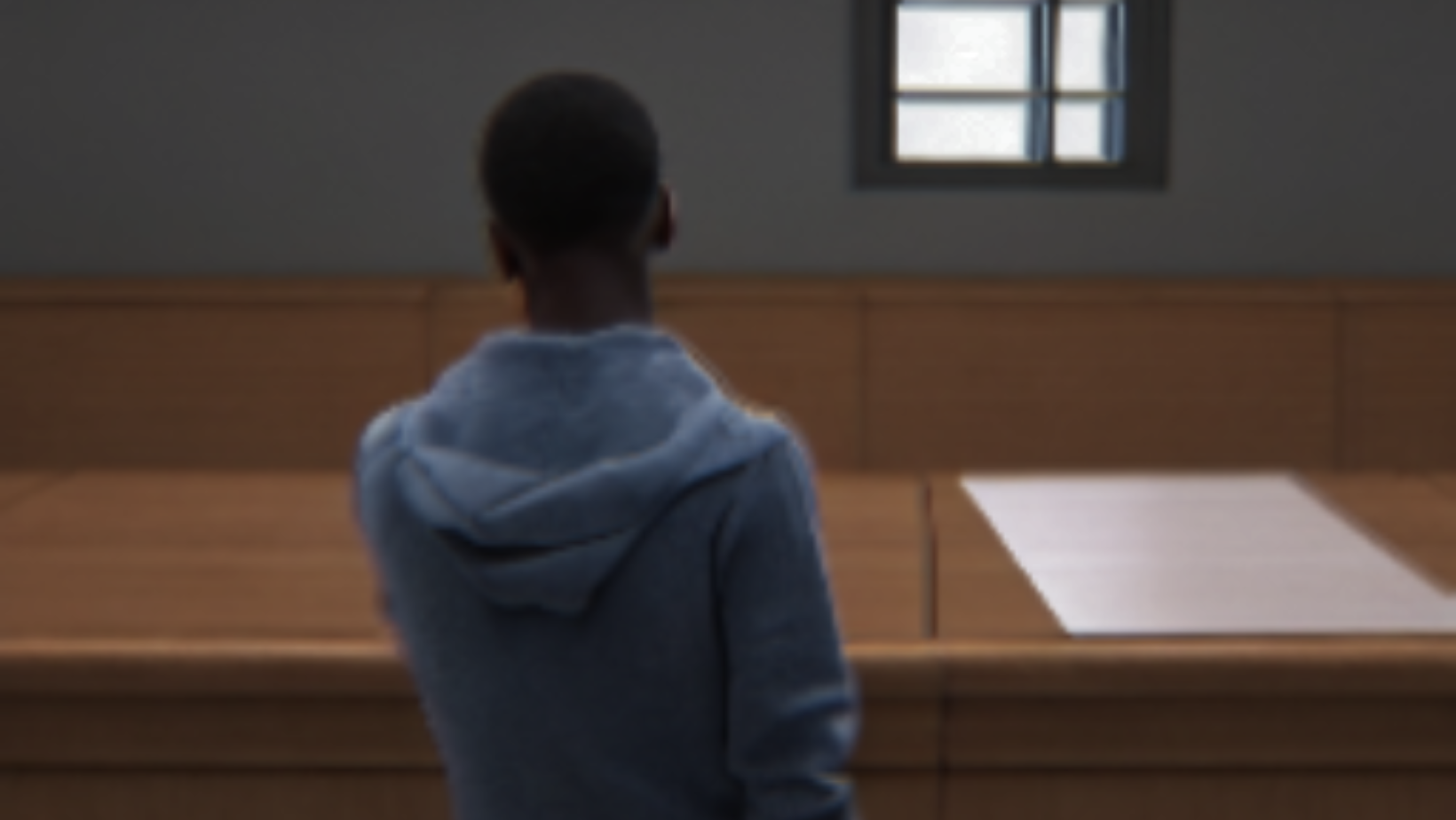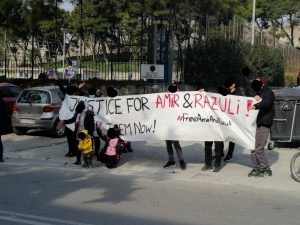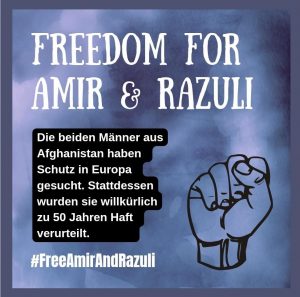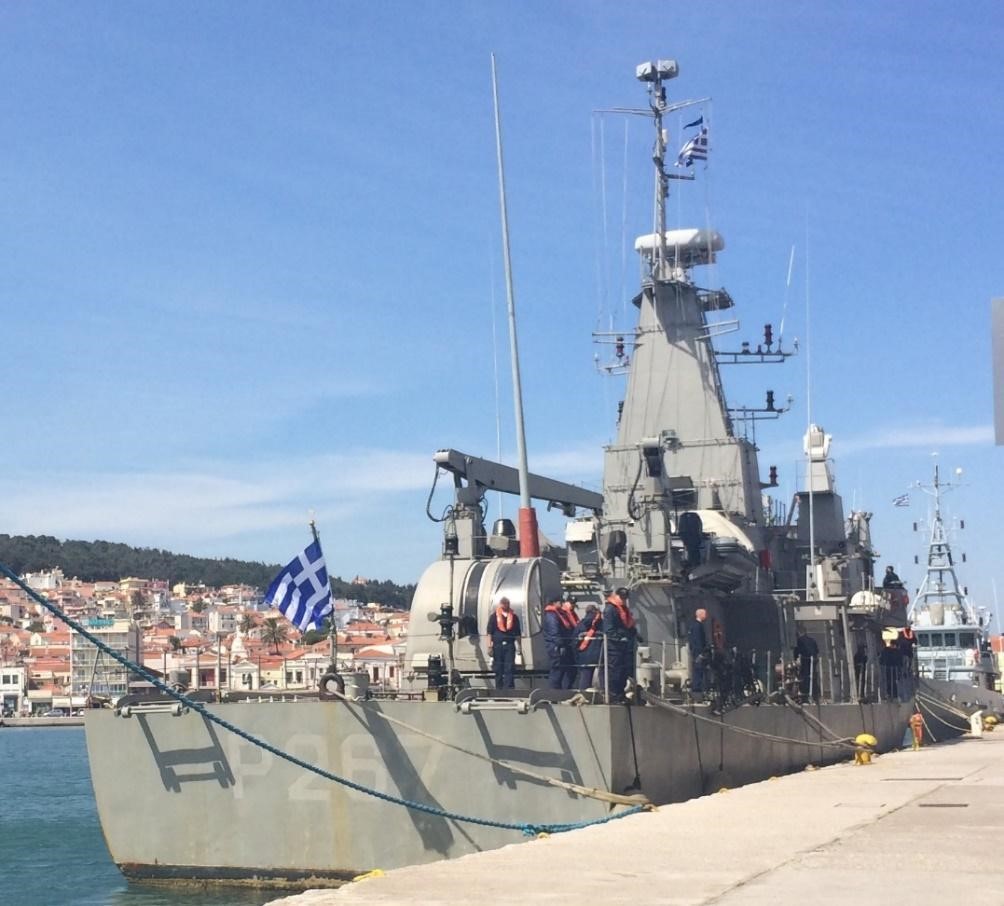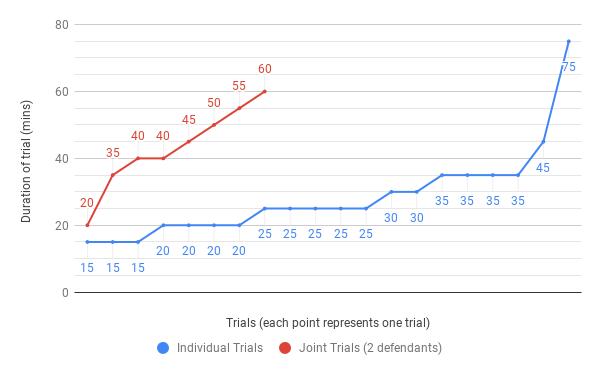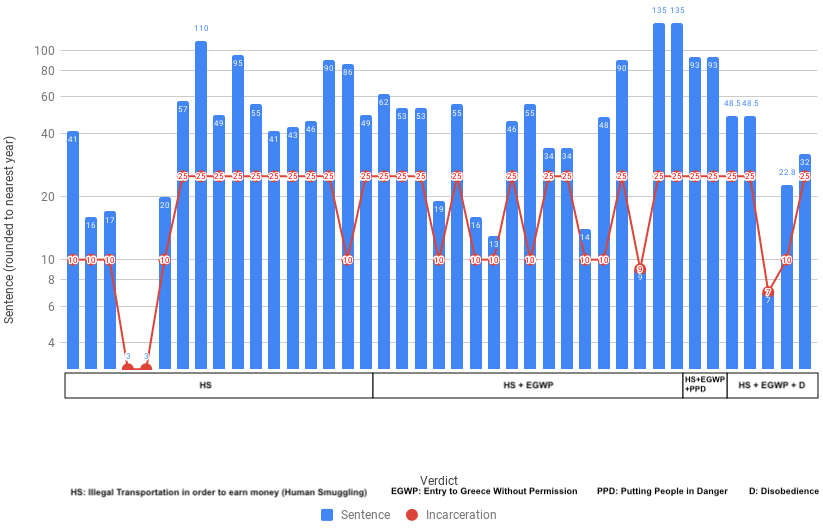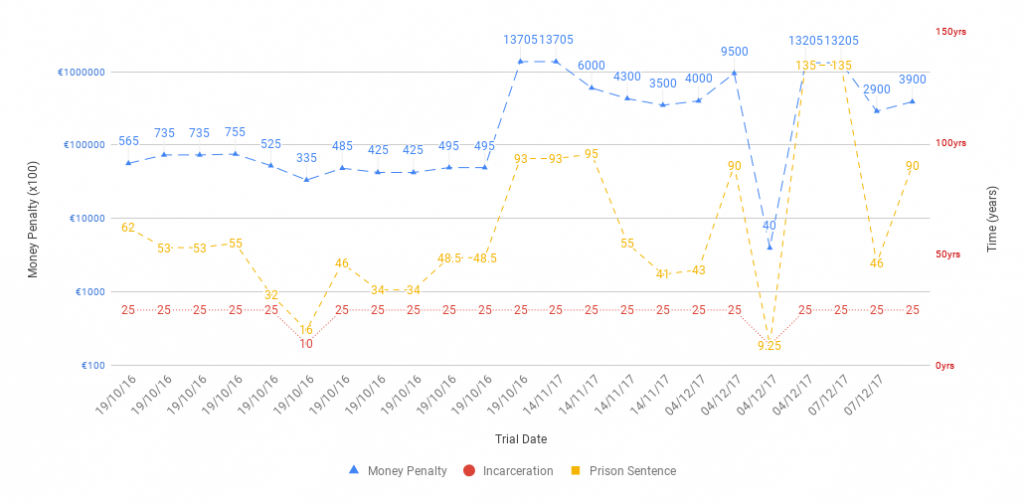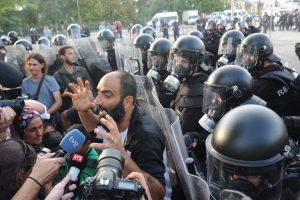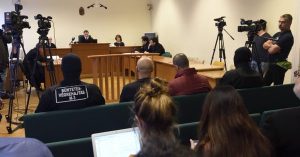(German and Spanish below)
Moria 6 sentenced to 10 years imprisonment after fire in Moria camp
Göttingen/Chios/Lesvos, 13.06.2021
Yesterday, Saturday 12 June, four teenage asylum seekers were found guilty of ‘arson with risk to human life’ and sentenced to ten years imprisonment at Chios court after the fire in Lesvos’ Moria camp. Despite documents proving that three of the accused were minors at the time of arrest, they were tried as adults. Two of the six defendants had already been sentenced in March at the juvenile court in Lesvos.
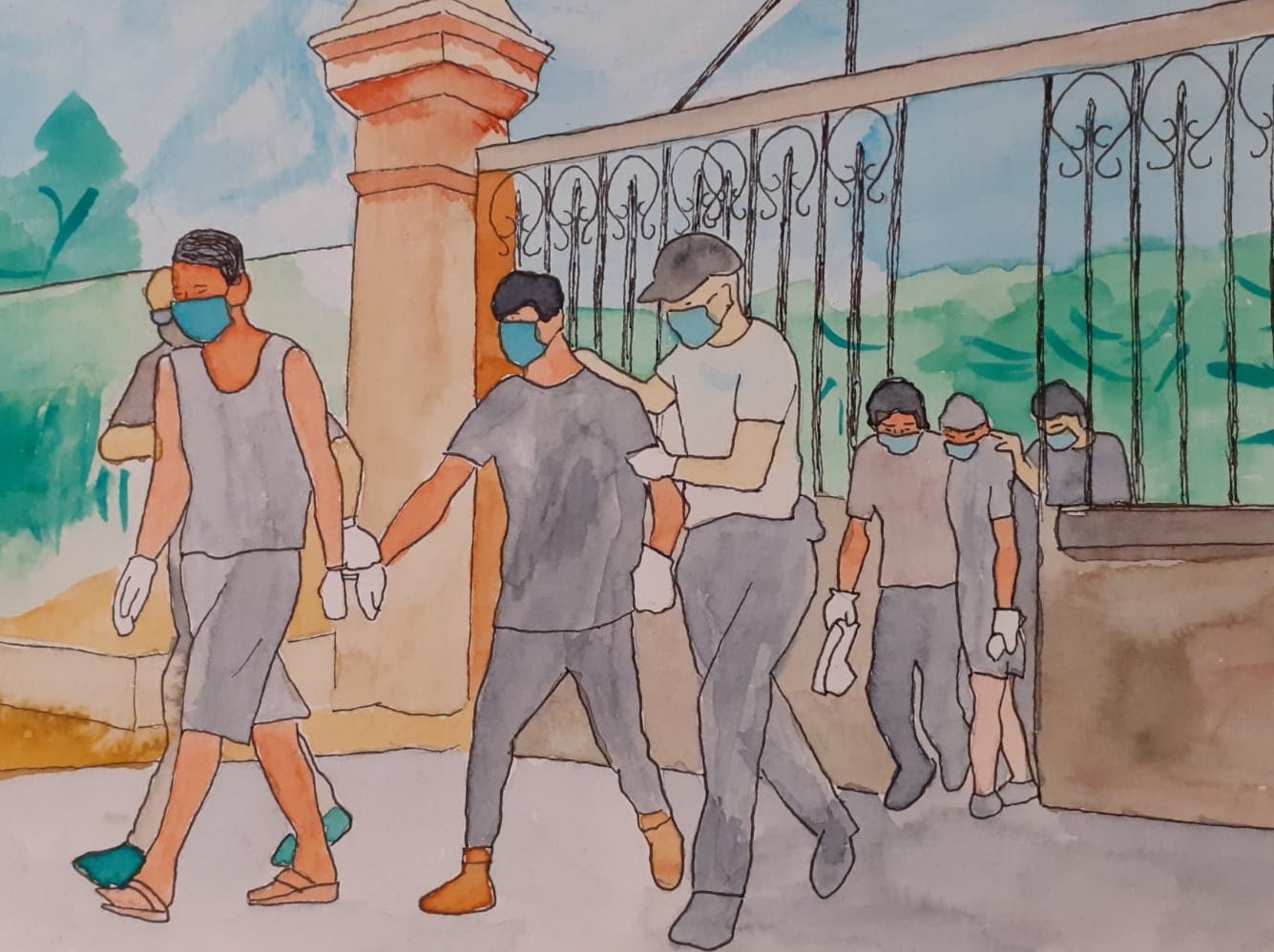
Over 70 European organisations and hundreds of individuals had made the call for a fair and transparent trial. Despite a lack of clear evidence of the four defendants’ involvement in the multiple fires, they were found guilty after a two-day trial.
Yesterday’s verdict came as no surprise to international trial observers who criticised the lack of evidence and spoke of an unfair trial procedure. Only 15 people were allowed in the courtroom. The public, including journalists, a delegation of international observers, and a representative of the UNHCR, was prevented from observing proceedings. At least six police officers were in the room – a disproportionate number that was not necessary to secure the court. A strong crowd of people showed their support for the defendants in front of the court building.
The six defendants were presented as guilty from the moment of their arrest. The Minister of Migration and Asylum, Notis Mitarakis, had already stated in an interview with CNN on 16 September 2020 that ‘The camp was set on fire by six Afghan refugees who were arrested.’
None of the fifteen prosecution witnesses who testified in court had seen the defendants on the night of the alleged crime. Defence lawyer Natasha Dailiani (Legal Center Lesvos) stated: ‘The only witness who identified the accused did not present himself to the court. His written testimony was full of inconsistencies.’ Lawyers claimed that the witness had only given police six first names, common among the population of the camp, which was the basis for their arrest.
Nevertheless, the three judges and four jurors unanimously ruled that the defendants were guilty of arson with endangerment to human life, and the aggravating circumstance of the destruction of private property.
The four accused had already been in pre-trial detention for nine months before the trial. A request by their lawyers to have the case heard by the Juvenile Court was rejected. Witnesses for the defence spoke of outward harassment by the court.
The two other defendants, officially recognised as minors, had already been sentenced to five years’ imprisonment by the Lesvos juvenile court in March 2021 in what observers labeled an unfair trial.
After the end of today’s trial, Annina Mullis, trial observer on behalf of Democratic Lawyers Switzerland (DJS) and European Lawyers for Democracy and Human Rights (ELDH), summarised:
“Based on the impressions gathered outside the court building and the detailed information provided by the lawyers, I agree with their assessment that the trial as a whole does not meet the standards of a fair trial.”
Defence lawyer Effie Doussi states,
“We will exhaust all legal remedies to ensure that the accused get a fair trial and a clear verdict showing that they are innocent.”
Oda Becker, an activist and member of the Free the Moria 6 solidarity campaign, has followed both trials and is in ongoing contact with those affected along with their family and friends. Commenting on the trial she said, “We will continue to support the wrongfully convicted boys and their families in solidarity! The case of the Moria 6 is not the first time that migrants have been arbitrarily arrested and charged in Greece. This practice has long been part of the inhumane EU border regime. However, in the current political environment, the criminalisation of migration has reached a new level, as have the illegal pushbacks of migrants by the authorities.”
Further information and contact:
Valeria Hänsel (speaker of the campaigne)
E-Mail: freethemoria6@riseup.net
Twitter: #FreeTheMoria6
Blog: https://freethemoria6.noblogs.org/
Politisches Urteil gegen vier jugendliche Geflüchtete der Moria 6 nach Brand im Lager Moria +++ Trotz Mangel an Beweisen Verurteilung zu Haftstrafe von 10 Jahren +++ Prozessbeobachter_innen kritisieren Unregelmäßigkeiten im Verfahren und die Vorverurteilung der Angeklagten
Göttingen/Chios. 12.06.2021
Nach dem Brand im Lager Moria wurden am heutigen Samstag vier jugendliche Geflüchtete auf Chios wegen “Brandstiftung mit Gefährdung von Menschenleben” trotz Minderjährigkeit zu 10 Jahren Gefängnishaft verurteilt. Zwei der insgesamt sechs Angeklagten waren bereits im März vor dem Jugendgericht in Lesbos verurteilt worden. Nach dem heutigen Urteil kritisieren internationale Prozessbeobachter*innen den Mangel an Beweisen und sprechen von einem unfairen Verfahren, bei dem die Öffentlichkeit ausgeschlossen wurde. Vor dem Gerichtsgebäude zeigten dennoch dutzende Menschen ihre Solidarität mit den Angeklagten.
Die lautstarke Forderung von über 70 europäischen Organisationen und hunderten Einzelpersonen nach einem transparenten Prozess wurde nicht erfüllt. Trotz des Fehlens eindeutiger Beweise für die Beteiligung der vier Angeklagten an den mehrfachen Bränden, wurden sie nach einem zweitägigen Prozess schuldig gesprochen.
Es waren nur 15 Personen im Gerichtsaal zugelassen; Öffentlichkeit, Jourrnalist_innen und angereiste juristische Prozessbeobachter_innen wurden ausgeschlossen. Gleichzeitig waren mindestens sechs Polizeibeamt_innen im Raum – eine unverhältnismäßige und unnötige Anzahl, die zur Sicherung des Gerichts nicht notwendig gewesen wäre.
Die insgesamt sechs Angeklagten waren von vornherein als Schuldige präsentiert worden. So hatte auch der Minister für Migration und Asyl, Notis Mitarakis, bereits am 16. September 2020 in einem Interview mit CNN erklärt: “Das Lager wurde von sechs afghanischen Flüchtlingen angezündet, die verhaftet worden sind.”
Aber keiner der 15 Belastungs-Zeug_innen, die vor Gericht ausgesagt haben, hatte die Angeklagten in der angeblichen Tatnacht gesehen. Das Gericht stützte sich einzig auf die schriftliche Aussage eines nicht mehr auffindbaren Zeugens, der die Angeklagten gesehen haben will, wie sie in der ersten Brandnacht im Camp Moria Feuer gelegt hätten. Seine Aussage ist jedoch voller Widersprüche. So legten die Anwält_innen zum Beispiel dar, dass der „abwesende Hauptzeuge“ nur gängige Vornamen von Personen aus dem Lager benannt hatte, auf deren Grundlage die Polizei sechs Personen festnahm. Diesbezüglich erklärte die Verteidigerin Natasha Dailiani (Legal Center Lesvos): “Der einzige Zeuge, der die Angeklagten identifiziert hat, hat sich dem Gericht nicht gestellt. Seine schriftliche Zeugenaussage war voller Ungereimtheiten.”
Dennoch entschieden die drei Richter und vier Schöff_innen einstimmig, dass die Angeklagten der Brandstiftung mit Gefährdung von Menschenleben in Verbindung zur Zerstörung von Privateigentum schuldig seien. Die vier Beschuldigten saßen bis zum Prozess bereits neun Monate in Untersuchungshaft. Trotz der vorliegenden Dokumente, die die Minderjährigkeit von drei der Angeklagten belegten, wurden sie nicht als solche anerkannt. Der gestrige Antrag ihrer Anwält_nnen den Prozess vor dem Jugendgericht zu verhandeln wurde abgelehnt. Die beiden offiziell als Minderjährige anerkannte Angeklagten waren bereits im März 2021 vom Jugendgericht auf Lesbos zu fünf Jahren Haft verurteilt worden; schon damals hatten Beobachter_innen von einem unfairen Prozess gesprochen. Nach Ende des heutigen Verhandlungstages hält Annina Mullis, die den Prozess für die Demokratischen Jurist_innen Schweiz (DJS) und die European Lawyers for Democracy and Human Rights (ELDH) beobachtet hat, zusammenfassend fest: „Gestützt auf die vor dem Gerichtsgebäude gesammelten Eindrücke und auf die detaillierten Angaben der Anwältinnen teile ich deren Einschätzung, dass das Verfahren insgesamt den Vorgaben an ein faires Verfahren nicht standhalten kann.“
Verteidigerin Effie Doussi erklärt: “Wir werden alle Rechtsmittel ausschöpfen, damit die Beschuldigten einen fairen Prozess bekommen und ein klares Urteil, dass die Beschuldigten Menschen unschuldig sind.”
Oda Becker ist Aktivistin und Mitglied der Solidaritätskampagne, hat beide Prozesse verfolgt und steht im kontinuierlichen Kontakt zu den Betroffenen sowie ihrem sozialen Umfeld. Zum Prozess sagte sie: “Wir werden die zu Unrecht verurteilten Jungs und ihre Familien weiter solidarisch unterstützen! Der Fall der Moria 6 ist nicht das erste Mal, dass Migrant_innen in Griechenland willkürlich verhaftet und angeklagt wurden. Diese Praxis ist schon lange Teil des unmenschlichen EU-Grenzregimes. Im aktuellen politischen Umfeld hat die Kriminalisierung von Migration jedoch eine neue Stufe erreicht, ebenso wie die illegalen Pushbacks von Migrant_Innen durch die Behörden.”
Für alle, die für Gerechtigkeit und gegen Rassismus kämpfen, ist der heutige Tag eine schwere Niederlage. Die Verurteilung der vier Jugendlichen ist ein weiteres schockierendes Beispiel, wie Menschen auf der Flucht kriminalisiert werden, um von der Verantwortung derer abzulenken, die die Existenz eines Lagers wie „Moria“ überhaupt erst möglich machen.
Weitere Informationen und Kontakte:
Valeria Hänsel, Migrationsforscherin und Sprecherin von #FreeTheMoria6
E-Mail: freethemoria6@riseup.net
Twitter: #FreeTheMoria6
Blog: https://freethemoria6.noblogs.org/
Más de 70 organizaciones europeas y centenares de particulares habían reclamado un juicio justo y transparente. Tras dos días de juicio, y a pesar de la falta de pruebas claras de la implicación de los cuatro acusados en los múltiples incendios, fueron declarados culpables.
El veredicto de ayer no sorprendió a los observadores internacionales del juicio, que criticaron la falta de pruebas y lo calificaron como un procedimiento judicial injusto. Sólo se permitió la presencia de 15 personas en la sala. Se impidió al público, incluidos periodistas, una delegación de observadores internacionales y un representante del ACNUR, presenciar el juicio. Además, había por lo menos seis policías en la sala, un número desproporcionado que no era necesario para proteger el tribunal. Una gran multitud de personas mostró su apoyo a los acusados frente al edificio del tribunal.
Los seis acusados fueron presentados como culpables desde el momento de su detención. El Ministro de Migración y Asilo, Notis Mitarakis, ya había declarado en una entrevista con la CNN el 16 de septiembre de 2020 que “el campo fue incendiado por seis refugiados afganos que fueron detenidos”.
Ninguno de los quince testigos de la acusación que declararon ante el tribunal había visto a los acusados la noche del supuesto crimen. La abogada de la defensa, Natasha Dailiani (Legal Center Lesvos), declaró que “el único testigo que identificó a los acusados no se presentó ante el tribunal. Su testimonio escrito estaba lleno de incoherencias”. Los abogados afirmaron que el testigo sólo había dado a la policía seis nombres de pila, comunes entre la población del campo, lo que sirvió de base para su detención.
No obstante, los tres jueces y los cuatro miembros del jurado dictaminaron por unanimidad que los acusados eran culpables de “incendio con peligro para la vida humana”, y la circunstancia agravante de “destrucción de la propiedad privada”.
Los cuatro acusados llevaban ya nueve meses en prisión preventiva antes del juicio. La petición de sus abogados de que el caso fuera juzgado por el Tribunal de Menores fue rechazada. Los testigos de la defensa dijeron que recibieron acoso y presiones por parte del tribunal.
Los otros dos acusados, reconocidos oficialmente como menores, ya habían sido condenados a cinco años de prisión por el tribunal de menores de Lesbos en marzo de 2021, en lo que los observadores calificaron de juicio injusto.
Tras el final del juicio de hoy, Annina Mullis, observadora del juicio en representación de Abogados Democráticos Suiza (DJS) y Abogados Europeos por la Democracia y los Derechos Humanos (ELDH), resumió:
“Basándome en las impresiones recogidas fuera del edificio del tribunal y en la información detallada proporcionada por los abogados, estoy de acuerdo con su valoración de que el juicio en su conjunto no cumple las normas de un juicio justo”.
La abogada de la defensa, Effie Doussi, afirma que “agotaremos todos los recursos legales para garantizar que los acusados tengan un juicio justo y un veredicto claro que demuestre su inocencia”.
Oda Becker, activista y miembro de la campaña de solidaridad “Free the Moria 6”, quien ha seguido los dos juicios y está en contacto permanente con los afectados así como con sus familiares y amigos, dijo comentando el juicio: “¡Seguiremos apoyando en solidaridad a los chicos condenados injustamente y a sus familias! El caso de los 6 de Moria no es el primero en el que los migrantes son detenidos y acusados arbitrariamente en Grecia. Desde hace tiempo esta práctica forma parte del inhumano régimen fronterizo de la UE. Sin embargo, en el actual entorno político, la criminalización de la migración ha alcanzado un nuevo nivel, al igual que las detenciones ilegales de migrantes por parte de las autoridades”.
